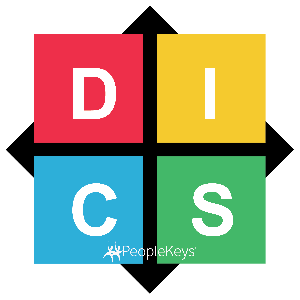
6 Ways to Benefit From Your Dominant Personality as a Manager
You might be a Dominant style boss if you:
- Enjoy being in a position of authority because it allows you to guide outcomes toward your goals
- Excel at making quick executive decisions
- Are active rather than passive
- Desire change and progress
- Try to always keep the bottom line in mind while making decisions
- Don’t think it is necessary to waste time discussing things at length with a group attempting to gain the consensus of a team before making a decision
- Believe that your employees should abide by the rules set into place
- Don’t like to be given a lot of details to deal with
- Don’t balk at opposition
- Enjoy a challenge
- Don’t mind haggling over prices or negotiating a sale
- Prefer to be in control rather than work under someone
- Believe that acts of service need to be compensated accordingly
- Aren’t afraid to ask for a raise
What’s great about a Dominant Boss:
A lot of things! Dominant bosses get things done. They have a penchant for identifying areas for improvement within a company, and are very innovative regarding potential solutions. These bosses can pinpoint precisely where a company is hemorrhaging money, and probably has fifteen ideas on how to solve this. The D style boss isn’t afraid of challenges or conflict. They face new situations with a fearlessness that other styles envy. The D boss is great in a crisis. Who do you turn to when things don’t go as planned, and you have less than 24 hours to accomplish something that normally takes a week and the delivery person is late and everyone is out sick? Stand aside, people, the D has got this. They are like a General on a battlefield- making snap calculations, delegating tasks, and keeping a cool head all the while. Additionally, if you are fortunate enough to have a D style boss that is behaviorally aware, you have a confident, decisive, fearless leader who is aware of his/her flaws and mitigates them with grace. You are very lucky.
Where a Dominant Boss might have room for improvement:
All of the things that make a D personality great can also be their biggest character flaws. Like all personality styles, if they are not subject to some amount of behavioral awareness, D’s assets become their liabilities. Their decisiveness and aggressiveness can be isolating and off putting. Their ability to negotiate and haggle can turn some sales circumstances into the type of high pressure situations that scares off passive personalities. Sometimes, their ability to be goal-oriented and remain focused on the big picture can make them a little farsighted and cause them to brush aside important details. Occasionally, the D boss can be so focused on the tasks that need to be done that they fail to build and maintain relationships with the people who will help them accomplish these goals. That’s ok. As long as the D boss can make a task out of improving their communication and relationships with their team. They should be able to accomplish this task as they have so many others. Here are some tips on exactly how to do that:
Tips for the D Style Boss:
1. Avoid getting into power struggles. If you have employees that are also D style personalities, these people could be your greatest asset, or your greatest liability. They also tend to be competitive and strong-willed. You can make sure that they work with, not against, you by ensuring you both are working toward a common goal and direction. Then you can use your competitive natures to spur each other on and challenge one another to rise to the occasion.
2. Become a little more people-oriented. Chances are, a good number of your employees are I or S style personalities. They may be put off by your aggressive, results-oriented disposition. If you make small talk and relationship work a task, you can help improve workplace morale. This will increase productivity, reduce turnover, and enhance your relationships with your employees. Treat people-ing as a task. Whenever it seems to feel like wasted effort, try to understand that something as simple as including a friendly greeting and a jovial tone in your email really will facilitate a better relationship with some of your people-oriented employees. And better team relationships= greater productivity. Something as simple as asking, rather than telling, someone to do something can benefit your company immensely when you are dealing with people-oriented team members.
3. Work on trust. The people who work with you are there for a reason. You (or someone else) hired them because of their expertise, their skills, their proven track record, and how well they thought they’d fit within the company. They applied to work at this company because they wanted to work at this establishment. On some level, they are invested in the success of the company. They probably understand that if they work hard and help the company succeed, they will be rewarded. Even though you are afraid of being taken advantage of, try giving your team members the benefit of the doubt. They may pleasantly surprise you. You can show them that you trust them by respecting their input. This could manifest in an ability to listen to their quotes regarding deadlines or costs, for example. Doing little things like this will greatly improve your relationships with your employees, which will improve their morale and, ultimately, the bottom line. (You’re probably noticing a trend here.)
4. Hire people whose skills are complementary to yours. You have a lot of valuable skills. But no one is good at everything. Perhaps you excel at being in high stakes negotiations, or at competing with an opposing company for a sale. You thrive in high pressure circumstances that cower more passive personalities. But while you are out fighting fires, someone needs to be taking care of the day to day business back at the office. Someone needs to do the monotonous tasks. Someone needs to be acting out your genius plans. Someone needs to keep you in check when your big, bold personality gets you into a different situation than you had intended. You are task-oriented and you need to be surrounded by both task oriented individuals, like yourself, and people-oriented individuals. Every organization can benefit from having team members whose skills are complementary to one another. These people-oriented team members are the glue that will hold your organization together. Every business is, at least in part, a people business. Whatever service you provide, you are providing it to other people. The input of people-oriented individuals is invaluable. They will take care of the things that you don’t see. Whether you surround yourself with people who take care of the details you don’t want to be bothered by, or simply bring in someone to provide stability to an office that is always firing on all cylinders. A good team is balanced and behaviorally aware. You can use your knowledge of DISC to build the perfect team, and surround yourself with individuals whose abilities will fill in the gaps in your own.5. Try to create a team culture that allows for everyone’s input. This doesn’t mean that you need to check with your entire team before you make every little decision. But when you ask for input and suggestions from your team, you will get information from a number of different perspectives and areas of expertise. Your team has a perspective that is invaluable, and may be able to contribute to your knowledge and allow you to make more informed decisions. They will have the specific ground level experience that will allow them to see pitfalls that someone who isn’t doing that job every day may not be aware of. Decisions that are based off of input from the employees who have a lot of experience with such matters can be even more effective than those based off of the gut reactions of an experienced leader. Innovative solutions can come from anyone, and when your create a culture that allows for a free flow of information, you can greatly improve your chances for success. This will, subsequently, improve morale, productivity, and the bottom line.
6. Little things go a long way. Just stopping by an employee’s desk to ask how it is going without any agenda of your own will go a long way with people-oriented personalities. Another example of a little meaningful thing that you can do to benefit your employees is to speak in a calmer, slower, and quieter voice when giving directives or delegating tasks. This will allow more sensitive and passive personalities to receive instructions without feeling defensive. One more such task that you can do is to try to pay attention when an employee is imparting a lot of details to you. Sure, in your mind you might be making mental leaps and creating shortcuts and brainstorming solutions. But this employee is trying to tell you that they think that all of these details are significant, not just some of them, and they may very well be. It is not a sign of weakness to tell them that details are not your strong suit, and inform them that it might be helpful if they emailed you the points they think are most salient so you can have a record of these details to inform future decisions. And don’t be afraid to let them know that perhaps these details might be something that they can take charge of since details are their forte. Having an open and honest dialogue about each individual’s skills will allow both of you to modify your role to better suit your abilities, and will ultimately improve your efficacy.
Take the Leadership Personality assessment to learn your style today!






